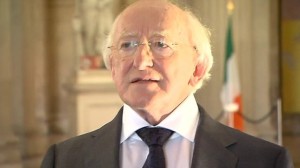
By Ann Marie Foley - 26 August, 2014
 Social justice must be at the centre of a nation which cares for all people according to the National Management Council of the Society of St Vincent de Paul (SVP).
Social justice must be at the centre of a nation which cares for all people according to the National Management Council of the Society of St Vincent de Paul (SVP).
Speaking about the Ethics Initiative of President Michael D. Higgins, the SVP stated it wants a dialogue in 2015 with a wide range of social, economic, education, culture, spiritual and NGO groupings with a view to finding a shared vision for Irish society into the future.
SVP National President, Geoff Meagher, said that while political and economic issues have been prioritised until now, social justice must be at the centre of a nation.
“Now is the time to discuss what matters most to us as a nation – its people and the situation in which they live, work or, in too many cases, try to exist without work. It is generally accepted that we lost something as a nation during the Celtic Tiger years. Now is the time to discuss the changes needed and to prepare for when the nation emerges from this difficult period. There are no easy answers, but that is no reason not to commence the debate,” Geoff Meagher said.
The President will open a half-day forum in Dublin on 22 September next.
At the forum in Dublin, the SVP will launch an exploratory research study with one-parent families it is assisting.
Entitled “It’s the hardest job in the world”, this study will focus on SVP’s work on the causes of poverty and exclusion, which has been there since its founding in 1844.
In July, at the President of Ireland’s Ethics Initiative Garden Party, President Michael D. Higgins said it was “a project to stimulate discussion across all sectors of Irish society on the challenges of living together ethically, and what is demanded at this beginning of the twenty-first century.”
 Representatives of community groups, charities, professional bodies, third level institutions were present.
Representatives of community groups, charities, professional bodies, third level institutions were present.
The President told them that a collective assessment of ethics and values is “both important and timely, as Ireland is emerging from a crisis that has not only economic but also political, social, intellectual and moral ramifications.”
He said that more globally the Irish and other nations of the world should tackle the challenges of uncertain and volatile times.
For example in: developments in technology and science; economic and financial globalization; unsustainable high levels of inequality and poverty; the scale of migrations worldwide; or global climate change.
“We are collectively and urgently challenged to find a distinctive, engaged and moral voice, to be conscious actors rather than passive targets in the current global flux of disintegrating models of social, economic and political life – circumstances that challenge the participatory core of democracy itself,” he stated.
The President suggested that people should “unlearn” assumptions such as: that generalized competition is the core impulse of human life; or the inevitability of unrestrained self-interest; and conceptions of value as being confined to what is measurable.
“Such ideas have become so pervasive, and caused so much damage, in our collective life that we are morally challenged to confront them,” he said.
He felt that Irish citizens are willing to move beyond anger and recrimination in response to recent difficulties.
“They are eager to discuss a new set of principles by which they might represent and project their lives together, and with all those with whom we share our common and fragile planet,” he said.
Universities have already held some of the more than 50 events that are to be held to stimulate debate on and awareness of ethics. Among the themes to be explored are ethics in all disciplines such as economics, cyberethics and media, healthcare, planning and construction, religion and public life.
The President of Ireland’s Ethics Initiative is the second in a series of public seminars and reflections that President Higgins intends to hold during his term in Office.